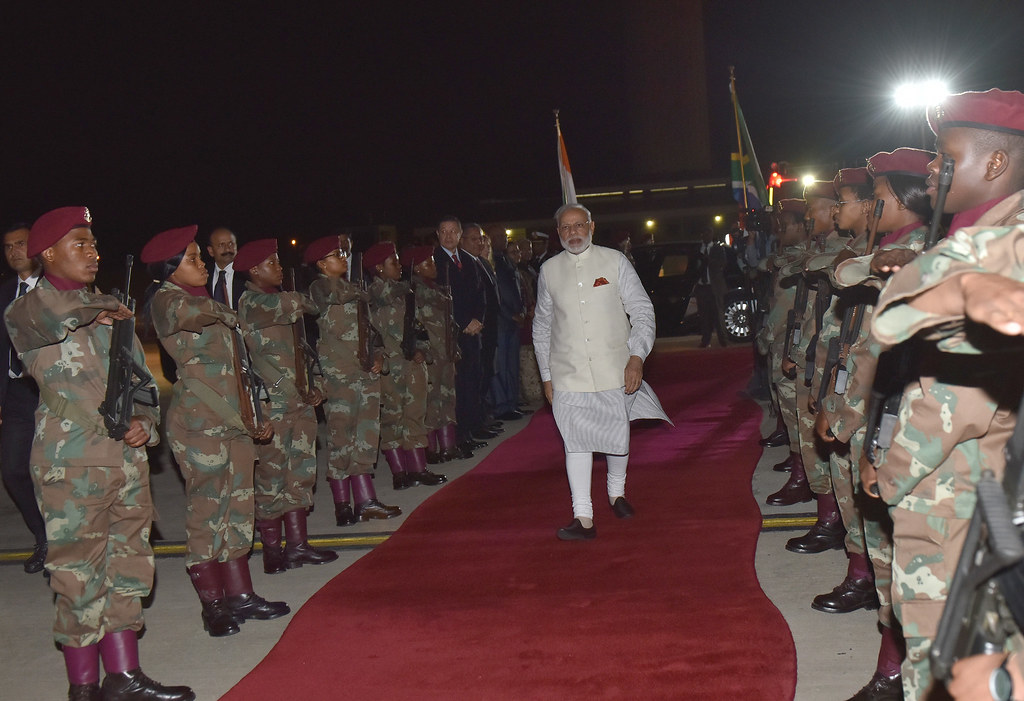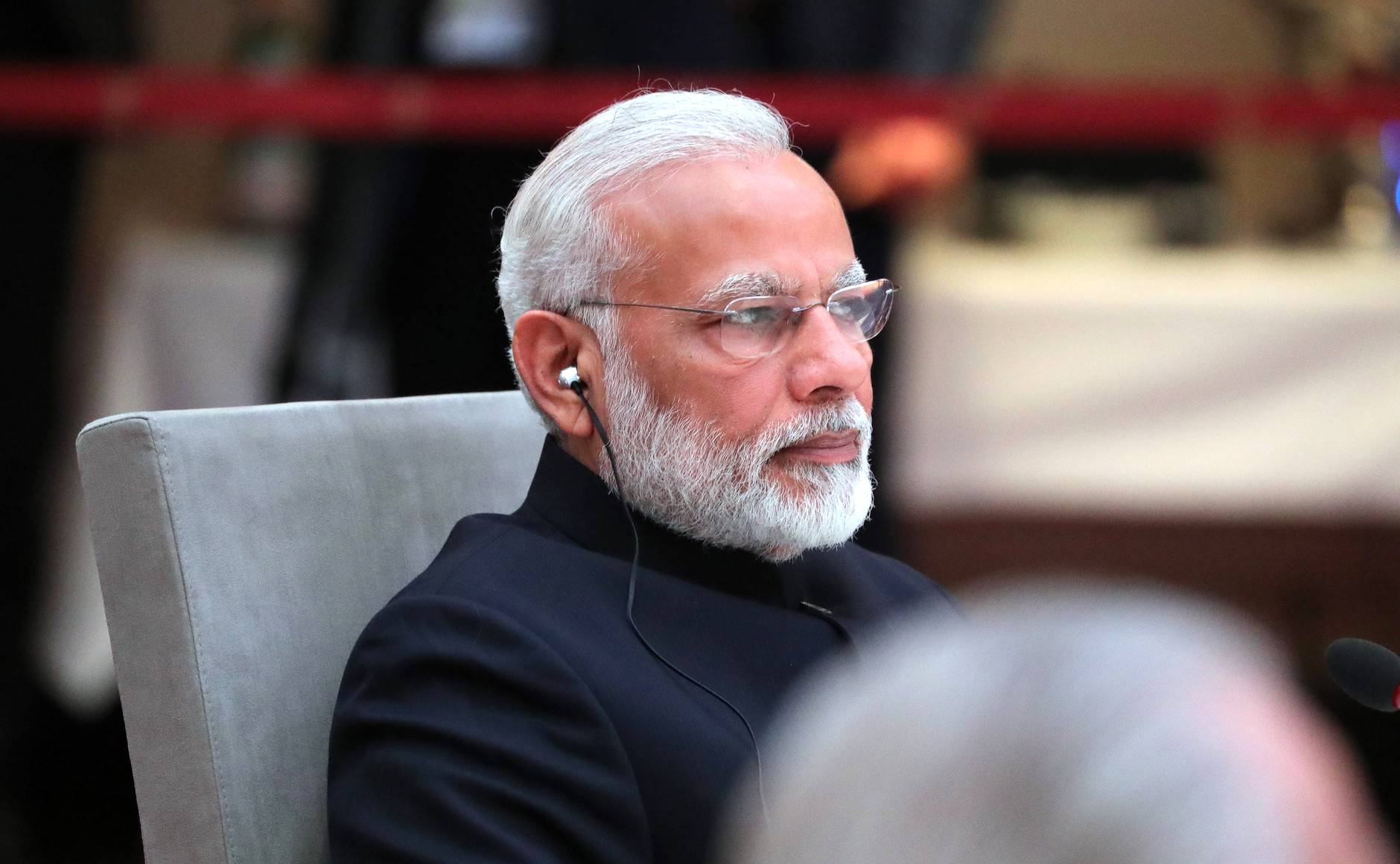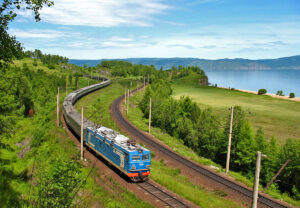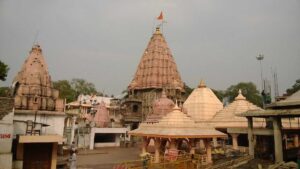Narendra Modi The Journey of a Dynamic Leader – Narendra Modi, the current Prime Minister of India, is one of the most influential and dynamic leaders in the world. His journey to the top of Indian politics is a story of determination, hard work, and leadership. In this article, we will take a look at Modi’s life and career, and explore the impact he has had on India and the world.
Narendra Modi: The Journey of a Dynamic Leader

Early Life and Career
Narendra Modi was born on September 17, 1950, in Vadnagar, a small town in Gujarat. He was the third of six children born to a family of grocers. Despite facing financial challenges, Modi was an excellent student, and he excelled in debating and public speaking.
After completing his higher secondary education, Modi joined the Rashtriya Swayamsevak Sangh (RSS), a Hindu nationalist organization, in 1967. He worked as a full-time organizer for the organization for several years, and during this time, he developed a strong interest in politics.
In 1987, Modi joined the Bharatiya Janata Party (BJP), and he quickly rose through the ranks. He was appointed the General Secretary of the BJP’s Gujarat unit in 1988, and in 1995, he was elected as the Chief Minister of Gujarat for the first time.
Modi’s tenure as Chief Minister was marked by a focus on economic development and infrastructure. He implemented policies aimed at attracting investment and creating jobs, and he also launched several initiatives to improve the state’s infrastructure, including the construction of new roads and the modernization of ports.
Rise to National Prominence
In 2001, Modi faced a major challenge when an earthquake struck Gujarat, causing widespread destruction and loss of life. Modi’s response to the disaster was widely praised, and it helped to raise his profile on the national stage.
Modi’s national profile received another boost in 2002 when communal riots broke out in Gujarat, resulting in the deaths of more than 1,000 people, most of them Muslims. Modi was widely criticized for his handling of the riots, and he was accused of not doing enough to prevent the violence.
Despite the criticism, Modi continued to rise through the ranks of the BJP, and in 2014, he was appointed as the party’s candidate for Prime Minister. Modi campaigned on a platform of economic development and job creation, and he was able to win a decisive victory in the election.
Impact on India
Since becoming Prime Minister, Modi has implemented a wide range of policies aimed at promoting economic growth and improving the lives of Indians. One of his signature initiatives is the “Make in India” campaign, which aims to attract foreign investment and promote domestic manufacturing. He has also launched several other initiatives, including Digital India, Swachh Bharat Abhiyan, and Skill India.
Modi has also focused on improving India’s infrastructure, including the construction of new highways, railways, and airports. He has also launched several initiatives aimed at improving access to healthcare, education, and financial services.
Modi’s efforts have had a significant impact on India’s economy. In his first term as Prime Minister, India’s GDP grew at an average annual rate of 7.5%, and he was able to bring down inflation and reduce the fiscal deficit. India’s ranking on the World Bank’s “Ease of Doing Business” index has also improved significantly under Modi’s leadership.
Modi’s efforts have not been without controversy, however. Critics have accused him of promoting a Hindu nationalist agenda and of cracking down on dissent. His government has been accused of using anti-terrorism laws to stifle dissent and of failing to protect the rights of minority groups.
Impact on the World
The impact of Narendra Modi’s leadership extends beyond the borders of India. Since becoming Prime Minister, Modi has made a concerted effort to raise India’s profile on the world stage, and he has been an influential player in international affairs.
One of Modi’s key priorities has been to strengthen India’s relationships with other countries. He has visited dozens of countries since becoming Prime Minister, and he has worked to build closer ties with countries around the world.
Modi has also been a vocal advocate for free trade and globalization. He has championed the benefits of trade liberalization and has been a strong supporter of international institutions like the World Trade Organization.
Under Modi’s leadership, India has also become more assertive in its foreign policy. The country has taken a more active role in regional security, and it has worked to counter Chinese influence in South Asia. Modi has also sought to strengthen ties with the United States and has worked to build a closer partnership with Japan.
Modi’s leadership has also had an impact on global issues like climate change. He has been a vocal advocate for renewable energy and has set ambitious targets for the deployment of solar power in India. Modi has also played a key role in international efforts to address climate change, including the signing of the Paris Agreement.
Modi has also been a key player in the fight against terrorism. India has been the victim of terrorist attacks for many years, and Modi has made the fight against terrorism a top priority. He has worked to strengthen India’s intelligence and security agencies, and he has called for greater international cooperation in the fight against terrorism.
Finally, Modi’s leadership has had a significant impact on India’s standing in the world. India is now seen as a major player on the international stage, and its economy is one of the fastest-growing in the world. Modi’s leadership has helped to raise India’s profile and has put the country on a path towards greater prosperity and global influence.
In conclusion, Narendra Modi’s leadership has had a significant impact on the world. He has worked to build stronger ties with other countries, has been a vocal advocate for free trade and globalization, and has played a key role in addressing global issues like climate change and terrorism. Under his leadership, India has become a major player on the world stage, and its future looks bright.
Best Leader till 2022
Since taking office in 2014, Indian Prime Minister Narendra Modi has led his country through a period of significant changes and reforms. From launching new economic initiatives to pursuing diplomatic relationships with other countries, Modi has left an indelible mark on India and the world as a whole.
In 2015, Modi launched the “Make in India” campaign, which sought to increase foreign investment in India’s manufacturing sector and promote the country as a destination for business. This initiative was followed by several other economic policies aimed at modernizing the Indian economy, including the introduction of the Goods and Services Tax (GST) in 2017, which replaced a complex web of state and federal taxes with a single, unified tax.
Modi also pursued several major infrastructure projects during this period, such as the construction of new highways, ports, and airports, which aimed to improve connectivity and reduce transportation costs. In 2016, he launched the “Smart Cities Mission,” which sought to create 100 new smart cities across the country, with a focus on sustainable and innovative urban planning.
In the foreign policy arena, Modi pursued closer ties with other countries, particularly the United States, with whom he established a strategic partnership in 2016. He also pursued closer relationships with other Asian countries, such as Japan and China, and sought to deepen ties with the Gulf states, including Saudi Arabia and the United Arab Emirates.
During his second term, from 2019 to 2022, Modi continued to pursue economic and social reforms, including the passage of the controversial Citizenship Amendment Act in 2019, which aimed to provide a path to citizenship for religious minorities from neighboring countries. This law sparked widespread protests and criticism, both within India and internationally.
Modi also faced significant challenges during this period, such as the COVID-19 pandemic, which hit India hard in 2020 and 2021. The Indian government launched a massive vaccination campaign, but the country struggled with shortages of medical supplies and hospital beds, leading to a significant loss of life.
Despite these challenges, Modi remained a popular and influential leader both within India and on the global stage. His focus on economic development, infrastructure, and foreign policy has helped to transform India into a more modern, connected, and influential country. As Modi’s term comes to an end in 2022, it remains to be seen what the future holds for India and for Modi’s legacy as a leader.




